Lagarie children's home abuse survivors lose compensation test case
- Published
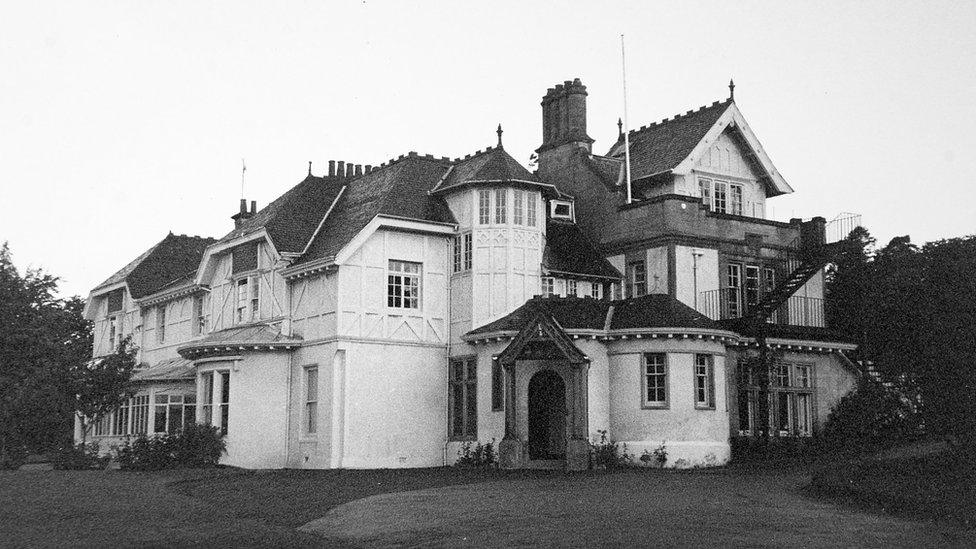
Dozens of people have told BBC Scotland they were abused at the home
Survivors of sexual and physical abuse from the Lagarie children's home in Rhu, Argyll, have lost a test case for compensation.
The Sailors' Society charity, which ran the home, successfully argued it could not get a fair hearing because the alleged abusers were dead.
The cases were brought following a BBC Disclosure documentary in 2018.
More than a dozen people told the BBC they were abused by staff at the home, many of them sexually.
Between 1949 and 1982, hundreds of children were sent to live at Lagarie. They were the children of seafarers taken in by the Sailors Society, a Christian charity supporting the families of men working at sea.
Roddy Austin, a former resident of the children's home, said: "They call themselves a Christian society. I see no Christianity coming from the Sailors' Society at all."
In 2018, the BBC Disclosure programme Suffer the Children uncovered decades of allegations of abuse over two different regimes at the home.
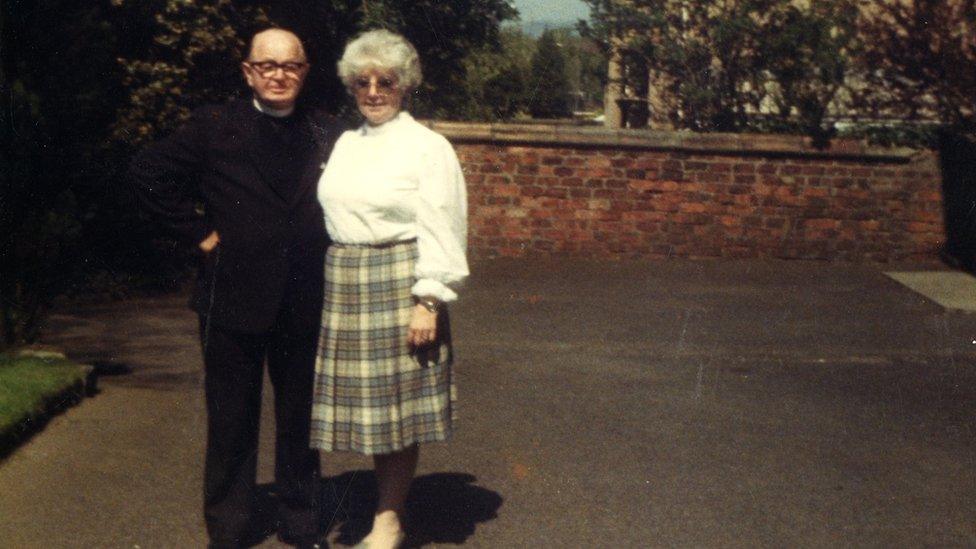
The Rev William Barrie has been accused of raping victims hundreds of times and his wife Mary of physical abuse
The then CEO of The Sailors' Society, Stuart Rivers, told the BBC: "I can't change the past, but I can make sure that that we do things right now.
"I'm not going to play dirty with this. I want to see a satisfactory outcome for them, and I'm committed to that."
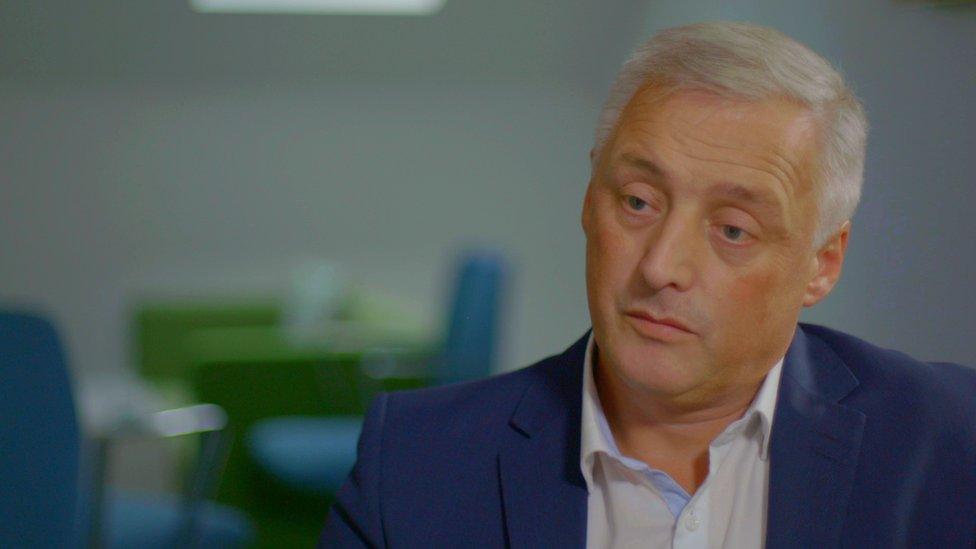
Stuart Rivers said the charity apologised unreservedly that the abuse happened
Mr Rivers left the charity. Subsequently, his former employer lodged a defence to civil actions taken by two former residents, who cannot be named for legal reasons.
The society argued it could not have a fair hearing because the principal alleged abusers, William and Mary Barrie, were dead and could not answer the allegations.
In a preliminary hearing at the Court of Session, Lady Carmichael dismissed the actions in favour of the Sailors' Society.
She concluded the absence of evidence from the alleged abusers was "a fundamental barrier to a fair hearing".
Concerns had been raised among campaigners that the case could have far reaching implications for other historical abuse survivors.
Thompson's solicitors represents the two former residents and more than 20 others who say they too were abused at the home.
Laura Connor, a partner with Thompson's, said this was the first time this defence was tested in a Scottish court.
Ms Connor said she was "extremely disappointed" by the decision.
"We want to assure clients and survivors more widely this is not the end of the journey by any means," she said.
"The decision is specific to the facts and circumstances of the two cases which were involved in this hearing.
"There has been no general points of principle made that erodes survivors' rights."
Ms Connor added: "There are still ways forward for these cases and with other cases in similar situations, and we will continue to fight for the justice and recognition that survivors deserve."
She said that plans to appeal the decision had been lodged.
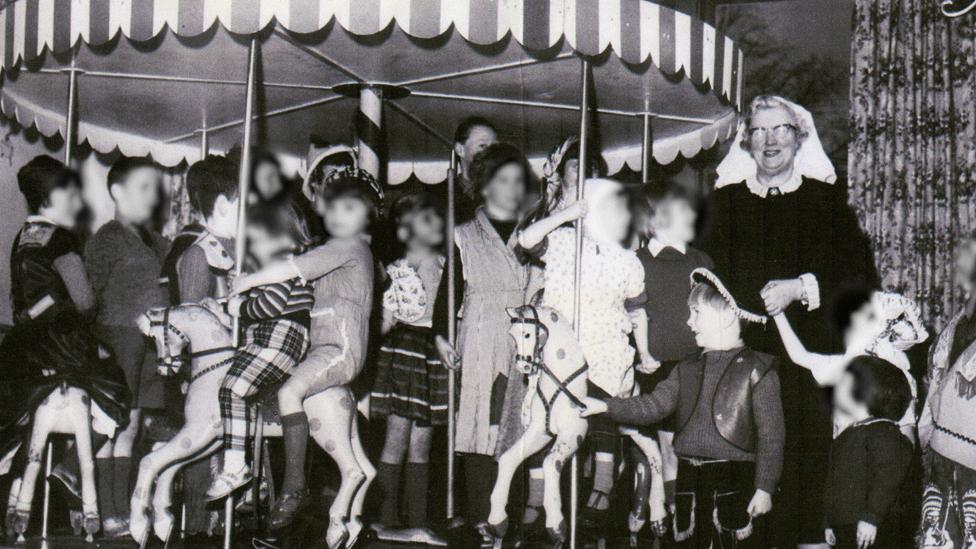
Matron Anne Millar pictured with Roddy Austin
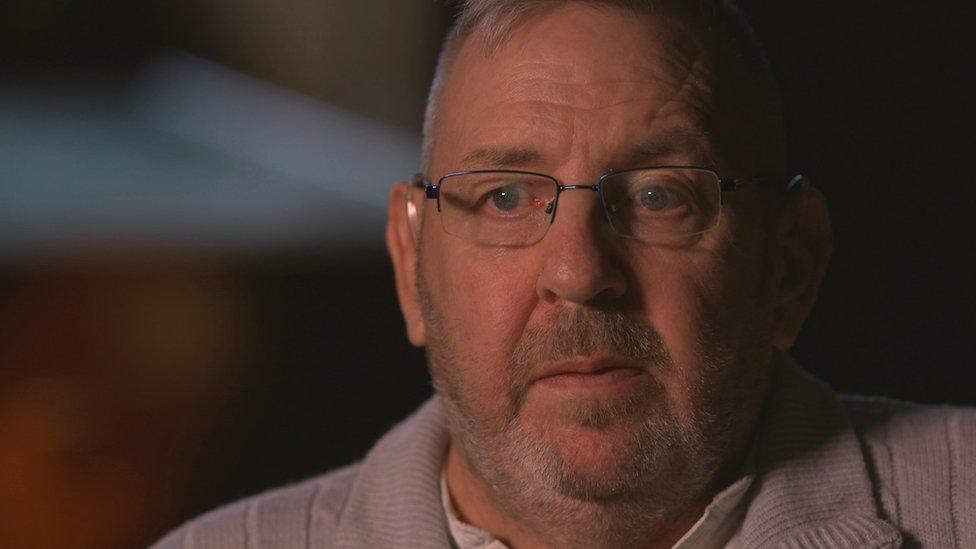
Roddy Austin said he lived in fear after being abused at the home
Roddy Austin, 63, who lived in the home in the 1960s, said the Sailors' Society had failed the survivors.
He said they had been told the society would look after them.
"They're now turning round with this judgment and saying, 'they're all dead, so therefore we've no case'," Mr Austin said.
"This is not over, not by a long shot."
The court judgment noted that in 2018 the Sailors' Society held reserves of about £10m.
Survivors of abuse at Lagarie can still apply for compensation from the Scottish government's redress scheme, set up this year for survivors of historical abuse in care.
A Sailors' Society spokesperson said: "This has been a very difficult process for everyone involved and this judgement is understandably disappointing for survivors.
"Lady Carmichael has ruled that as the alleged abusers are now dead and did not have the opportunity to answer the allegations before they died, it is impossible for a fair trial and therefore the cases cannot proceed.
"We deeply regret that any child was abused at Lagarie and we have apologised unreservedly for any abuse.
"The current Sailors' Society is a very different organisation, and nobody involved in these historic events is connected in any way with the organisation now.
"In recent years we have worked hard to respond as fully as we can. We have met with survivors, financed counselling, asked police to reopen their investigations and fully cooperated with the police and the Scottish Child Abuse Inquiry."
The spokesperson added it would continue its conversations about contributing to the government's redress scheme.
Related topics
- Published17 September 2018

- Published10 January 2020
